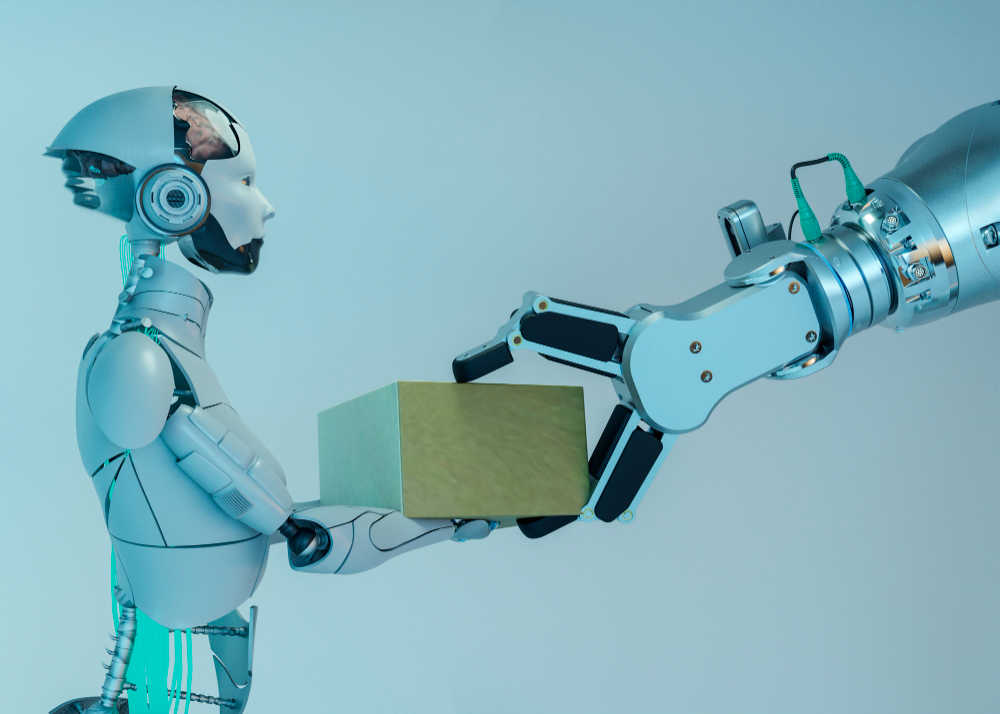In the ever-changing tech world, Robotic Process Automation (RPA) has emerged as a game-changing presence to transform traditional business practices. By automating monotonous tasks, RPA empowers companies to redirect their human resources to more meaningful and impactful work. Whether you aspire to enter the field of RPA or want to elevate your existing skills, pursuing automation testing courses online is a vital move. This introductory guide will take you on a comprehensive tour of RPA certification, equipping you to embark on your quest to become an RPA master.
A Brief Overview of Robotic Process Automation
Before you enrol in automation testing courses, you should capture a brief overview of the RPA process. Robotic process automation (RPA) emulates the back-office duties typically performed by human workers, such as data extraction, form completion, and file movement. By combining APIs and user interface interactions, RPA seamlessly integrates and executes repetitive tasks across enterprise and productivity applications. Through the use of scripts that mimic human processes, RPA tools autonomously carry out a variety of activities and transactions across multiple software systems.
A Glimpse into Automation Testing Courses for Beginners
The automation testing courses for beginners will provide you with in-depth knowledge about the basics of RPA. It will begin with imparting knowledge about crucial concepts related to software testing technologies. You will be able to become familiar with technologies like Selenium Web Driver, Appium, and Docker.
With 200 hours of applied learning, the best RPA certification will make you noticeable among top employers. You will be able to learn fundamental principles through a blended learning format. At the end of the certification, you will find the opportunity to work on a capstone project to optimise your practical automation testing skills.
Key Reasons to Learn Robotic Process Automation
If you are a little sceptical about pursuing the best automation testing courses to learn RPA, we have some reasons to convince you:
- Versatility
Numerous business processes, regardless of a company’s size, rely on repetitive tasks. These processes often involve duplicating, comparing, or evaluating data across multiple platforms, including applications, emails, websites, and Excel spreadsheets. With the utilisation of RPA software, these processes become ideal for automation. The Robotics Process Automation (RPA) courses teach learners how to complete these tasks at a faster pace, with greater efficiency and heightened accuracy.
- Easy to Learn
Learners don’t need coding knowledge to be eligible for online automation testing courses. It’s true that familiarity with programming will help in understanding RPA concepts faster. But the RPA software developer programs are always an opportunity for IT professionals to improve their coding skills. By familiarising you with coding tools and processes, RPA courses will allow you to automate more complex business processes.
- High Security
Unfortunately, a data breach can have devastating consequences for businesses. Storing data in a central repository, as done with RPA, can greatly minimise the risk. This is because employees are responsible for setting accessibility to data related to their specific tasks, ensuring that only authorised personnel have access. Additionally, any non-essential data is encrypted, providing an added layer of security. Therefore, pursuing automation testing courses online will make you a valuable asset to businesses.
- Supports Integration
Experience the full potential of Robotic Process Automation technology by pursuing automation testing courses for beginners, as it streamlines manual tasks on your computer with ease. This innovative solution also allows the integration of multiple business applications, including SAP, MS Excel, MS Outlook, and Chrome, leveraging its capability to handle complex business logic. You can utilise programming code seamlessly incorporated into your RPA solution for even more intricate processes.
- Remote Work Opportunities
When working on RPA projects, one often encounters the need to communicate with individuals from a variety of departments, companies, and even countries. There is a noticeable trend where companies are increasingly allowing RPA employees to work remotely, whether partially or entirely. This opens up a plethora of RPA job opportunities in foreign countries after pursuing the best automation testing courses.
- Intelligent Automation
By utilising the cutting-edge technology of robotics process automation, manual labour is greatly minimised. Contrary to popular belief, RPA is not a theoretical concept that requires memorisation. Rather, it relies heavily on hands-on experience and practical application.
If your company’s workflow fails to produce the desired results, RPA allows for necessary adjustments to be implemented. This can greatly impact the final outcome in a positive way. Without a doubt, the wide-reaching impact of robotic process automation can be observed across all industries.
- Continuous Learning
With the dynamic nature of the automation industry, thriving for a long time requires continuous learning. The automation testing courses covering RPA will help you stay relevant in the industry with knowledge about the latest trends. Moreover, you will be able to engage in real-time automation through capstone projects related to the industry.
Technical Responsibilities After Pursuing RPA Courses
Once you pursue Robotic Process Automation (RPA) courses, you will have the technical responsibility of automating quality assurance tests. But these courses will also help you handle the following responsibilities seamlessly:
- Working on business process automation by adhering to standard RPA conventions and methodologies
- Designing, developing, and deploying RPA products alongside a global team to cater to global clients
- Understanding the scope and design of the business process framework
- Developing a specific design to execute the to-be processes
- Creating and customising automated solutions
- Guiding change management to modify existing processes and facilitating updates
- Supporting continuous improvement processes according to the required updates
- Enabling process design, formulating validation rules, and creating detailed reports
- Configuring control objects, process flows, and exception handling
Ending Note
Learning Robotic Process Automation can help you build a career with a lucrative annual salary of Rs 6 lakhs. Moreover, the rising need for automation will help RPA-certified professionals find jobs in a multitude of industries all over the globe. So, if you have been thinking about enhancing your automation skill set with an RPA course, you are on the right track.



